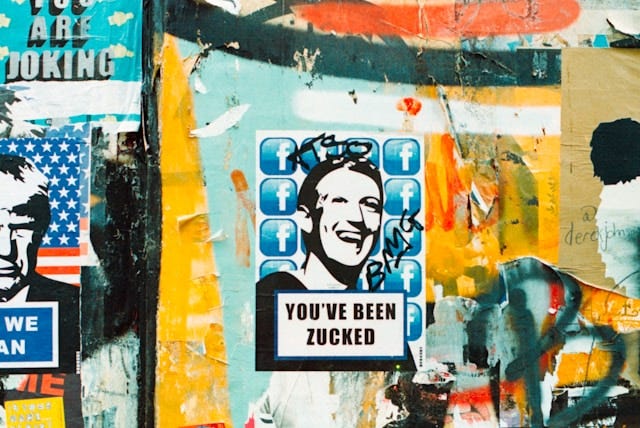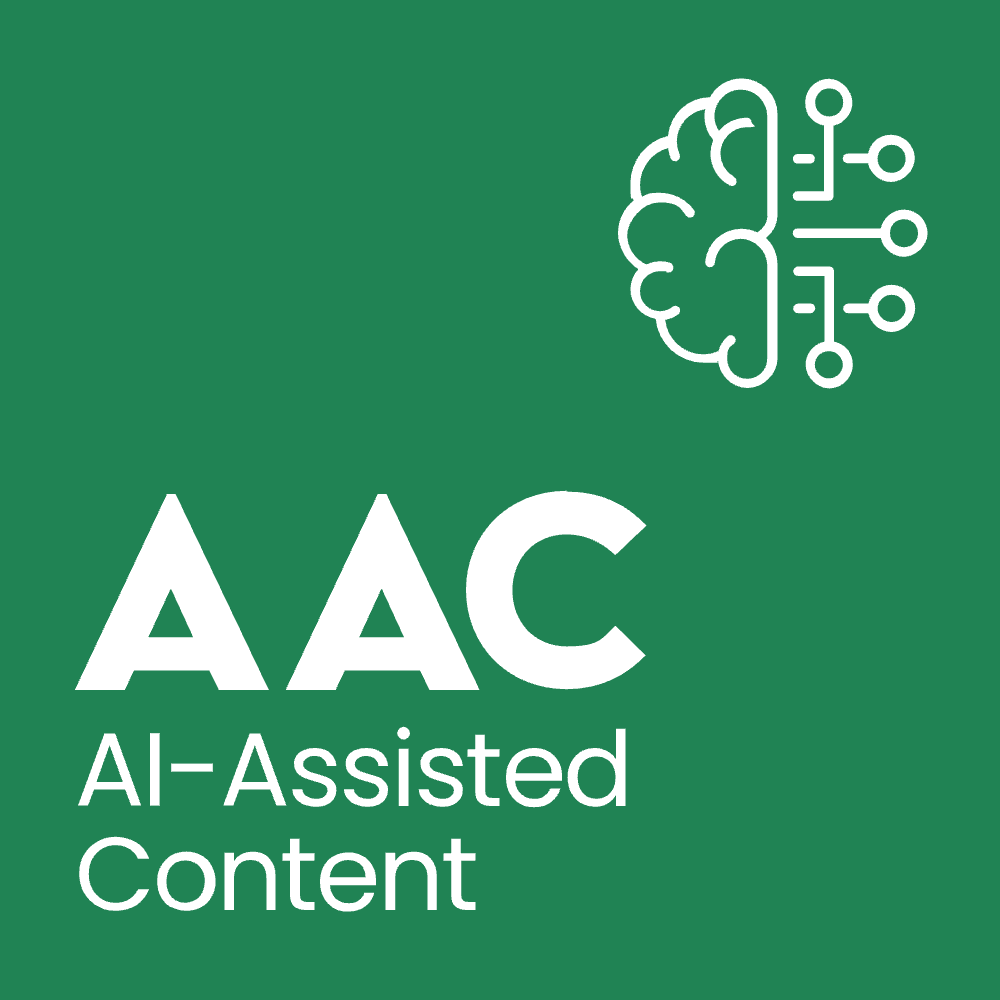Facebook’s New Terms of Service – What You’re Giving Up in 2025
No one reads the legalese in this updates - so AI and I did it for you. Byline by Credtent CEO, Eric R Burgess.
Did you get an email from the Zuck this morning? I did and if you’re one of the billions still roaming around the social network that defined so much of our modern perspective, you should really read up the changes.

But who in the world has time for that? So, my friend ChatPDF and I are here to help. Yes, this is what we at Credtent.org call an AI-Assisted piece of content because I used ChatPDF to help analyze the update and find some bugaboos that might be worth a second look. This is what I often tell people - use AI to help protect yourself against AI.
Let me disclose clearly that I am not an attorney and this is NOT legal advice. It’s just what a read of the TOS changes means from both an AI’s analysis and my own personal take on this coming from the perspective of someone whose life and work (as Credtent’s founder) is focused on making sure content creators are protected in the Age of AI. I’d note that ChatGPT’s Canvas helped me organize my thoughts as well, but I’ve rewritten most of its output because I’m a writer, not an #AISlacker. Still, this qualifies as AI-Assisted Content because I used AI as my collaborator.
Now, with the disclosures out of the way, here’s the meat of the article.
Facebook’s Terms of Service Update, set to take effect on January 1, 2025, could be a turning point for content creators, privacy advocates, and casual users alike. Meta, Facebook's parent company, has clarified how your data is used, tweaked its stance on user rights, and taken steps to secure its data dominance.
Below, you’ll see an outline of what’s changing, what it means for you, and why you might want to reconsider your relationship with the platform. Sound like a good time? No, not really. But I hope this proves easier than parsing the legalese yourself.
What’s Changing?
Here’s a breakdown of the major updates compared to the existing terms:
Data Usage: Facebook emphasizes that it doesn’t sell personal data but uses it extensively to deliver targeted ads and sponsored content. They also admit to leveraging advanced technologies (hello, AI!) for "research and development”. What could go wrong there?
Legacy Contacts: You can now appoint someone to manage your account posthumously. This sounds convenient and, to be honest, I’ve found it painful to see the occasional suggestion of a friend who I know has passed. But it opens the door to new privacy concerns, post-mortem.
Unilateral Terms Updates: By simply using the platform, you consent to any future changes. In other words, your agreement is automatic – whether or not you like the changes. If you stay on FB, you don’t need to accept terms - you’re opting in automagically.
Content Rights: Facebook retains broad rights over content you upload, including intellectual property. While it’s unclear how far this stretches, it raises questions about whether your creative work could be appropriated for purposes like AI training to produce work based on your own. We’ve already seen how FB content has been used in advertising without compensation or credit. This could get much worse.

Photo by Roman Martyniuk on Unsplash
Concerns for Content Creators
If you create content, Facebook’s new terms should raise a bright red flag. Here’s why:
AI Training Ambiguity: Meta admits to using AI and machine learning but stops short of specifying whether your content is used for training purposes. This lack of transparency leaves creators vulnerable to their work being exploited. Based on the past history of this and, frankly, most technology platforms, I’d be inclined to not trust this omission as being innocent.
Intellectual Property: While you retain ownership of your content, Facebook’s broad license to "use" it creates a gray area. What stops them from repurposing your video or photo for marketing campaigns—or worse, feeding it into an AI model to allows for creation of content that is competitive to your own?
Control Erosion: By continuing to use the platform, you implicitly are agreeing to future terms, giving Facebook a blank check to rewrite the rules as they see fit. Again, what could go wrong? We can’t know!
What’s at Stake for All Users
Even if you’re not a content creator worried about your work being used against your future success, there’s still plenty to worry about:
Privacy: Meta claims it protects user privacy, but vague language about data analysis and AI leaves you wondering how much of your information is truly secure.
Account Management: Accounts can be (and have been) disabled (by Meta) for unclear violations. What happens to years of uploaded content if you’re suddenly locked out? This already happened to me once because of a scam. I tried to contact support but Meta made it nigh impossible to do anything about it - although scammers kept writing to me saying they could restore it for a fee. That’s some excellent customer service, huh?
Transparency: The absence of clear disclosures about AI training practices sets a dangerous precedent for big tech. If Facebook doesn’t explicitly outline its policies, who will? This is a bigger deal than you might think if you’re posting all kinds of pictures of yourself, your children, and your home.
Long-Term Repercussions
Sticking with Facebook post-2025 might begin to feel like maintaining access to a popular party or tribe while sacrificing your autonomy. The long-term risks include:
AI Entrapment: Your creative content could be mined to improve AI tools, with no opt-out clause. Imagine contributing to technology that competes with or devalues your own work. That said, Credtent.org IS sending opt-out requests to Meta for registered Credtent users. The legal fight over this dicey policy is coming so we’re preparing users for it.
Data Monopoly: The more data Facebook collects, the stronger its grip on user behavior and advertising markets. Users could face fewer alternatives as competitors struggle to keep up. Worse, how much (and how often) will Facebook sell their information to adtech and data brokers that can extrapolate a lot about you from your behavior. However much information you think is out there about you, let me be blunt - it’s 10X worse.
Legal Precedents: If unchecked, Facebook’s practices may influence other platforms to adopt similar, creator-unfriendly terms. I can’t imagine anybody wanting BlueSky, Medium and other sensible platforms to edge into these terms over time because we were just accepting them getting worse and worse.

What Should You Do?
Here are some actionable strategies to start today to better protect yourself:
Diversify Platforms: Share your work on platforms like BlueSky, which explicitly refuses to train on user content, or Medium for long-form writing. This is what I am doing now. I’m also on Substack, although you need to directly opt-out of their use of your work for AI training.
Minimize Uploads: Use Facebook to post links to your external content rather than uploading original files directly. FB’s algorithm dings you for outbound links but it’s probably worth it in the end.
Monitor Updates: Keep an eye on Meta’s future changes and reconsider your use of the platform as needed. If it’s still worth it to you, have at it. For me, the camel’s back was broken years ago. I’m just getting tired of the pile of straw gathering on the poor thing.
Advocate for Regulation: Push for transparency and ethical AI practices in the tech industry. Your voice matters. Join Credtent.org to help fight back against unethical AI theft of your person and content.
Now is time to say goodbye to Meta
Meta’s new terms make one thing clear: Using Facebook in 2025 comes with a huge knot of strings attached. Whether you’re a content creator or just someone who values privacy, now is the time to rethink your digital footprint. The platform may remain convenient (and “free” unless you're an advertiser), but the cost—measured in rights and data—is higher than ever.

For me, I’m reducing my footprint to just posting links to my personal work elsewhere. Want to know where?
Substack - Newsletter Content - https://burgessing.substack.com
BlueSky - Short-form social - https://bsky.app/profile/erburgess.bsky.social
Medium - Long-form social - https://medium.com/@erburgess_AI




